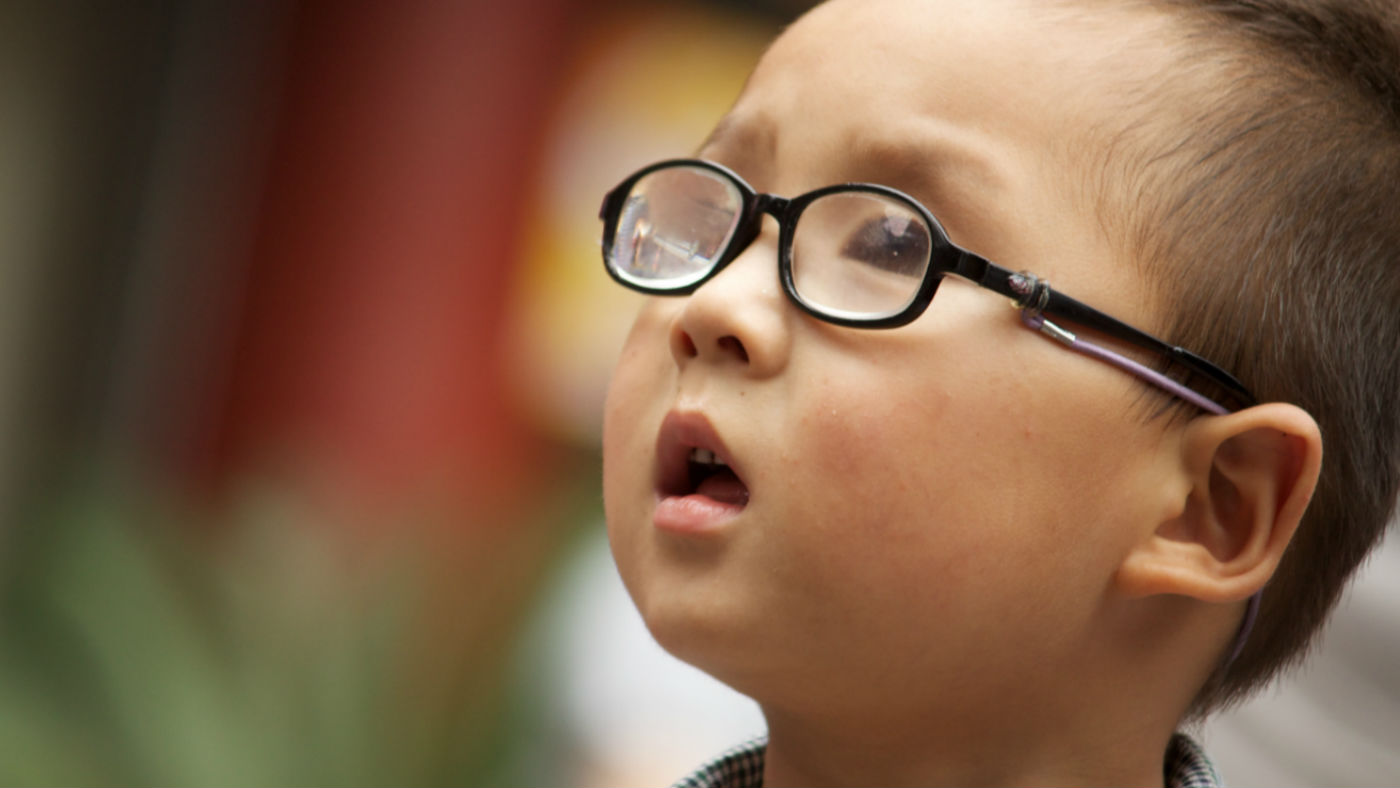Myopia: why do so many children need glasses?
Myopia rates are soaring - and screen time is not entirely to blame

A free daily email with the biggest news stories of the day – and the best features from TheWeek.com
You are now subscribed
Your newsletter sign-up was successful
A study in the British Journal of Ophthalmology has concluded that children may reduce their risk of developing myopia by spending more time outdoors.
In a study which examined 1,077 individuals, scientists discovered that, while genetics do factor in to the equation, controllable environmental factors such as playing video games also affect the likelihood of a child becoming short-sighted.
Those who played video games in early adolescence were at a proportionately higher risk of developing myopia, which researchers suggest is linked to spending less time on outdoor activities.
The Week
Escape your echo chamber. Get the facts behind the news, plus analysis from multiple perspectives.

Sign up for The Week's Free Newsletters
From our morning news briefing to a weekly Good News Newsletter, get the best of The Week delivered directly to your inbox.
From our morning news briefing to a weekly Good News Newsletter, get the best of The Week delivered directly to your inbox.
“A healthy balance of time outdoors and balance during early education is important,” Katie Williams, the author of the study, told The Guardian.
In addition, scientists discovered children born in the summer where more likely to develop short-sightedness than their peers, a fact researchers credited to earlier entry into the education system, which is associated with changes to the shape of the eyeball linked to myopia.
Despite only a quarter of the world's population of young people being diagnosed as shortsighted in 2000, the number is expected to grow to over half of the world's population by 2050, especially in Asia, where the number could grow up to 90%, .
So why are so many young people developing short-sightedness?
A free daily email with the biggest news stories of the day – and the best features from TheWeek.com
Having short-sighted parents is a risk factor for myopia, but the cause of the current epidemic is “acquired rather than genetic”, according to a recent overview published in Progress in Retinal and Eye Research.
An increase in the amount of time children and young people spend in front of screens might seem the obvious answer. But the real explanation is probably not so simple.
Rather than the screens themselves causing eye damage, the increasingly sedentary social lives of children and young people may be to blame.
Looking at smartphone or computer screens is a form of “near work” - meaning activities involving up-close focus, such as reading, watching TV or sewing - which is indeed linked to an increased risk of becoming short-sighted.
However, this risk can be offset by spending time outside. “There is now consistent evidence that children who spend more time outdoors are less likely to be or become myopic,” researchers write.
This theory would explain why myopia epidemic is particularly prevalent in cultures with a highly-pressurised educational environment, typically accompanied by long hours of studying and little time for outdoor play.
“In the 1950s, roughly 20 to 30% of 20-year-olds in Hong Kong, Taiwan and South Korea suffered from myopia,” compared to more than 80% today, says Bloomberg.
This hypothesis holds true even for populations with little exposure to screens - studies in Israel show that orthodox Jewish boys who spend long days poring over printed religious scripture suffer from a far higher rate of short-sightedness than their secular counterparts.
Experts have calculated that two hours a day outside can mitigate the myopia risk associated with “near work”. However, parental anxiety, demanding homework schedules and the rise of electronic entertainment are increasingly keeping children indoors. A 2016 survey found that 74% of UK children aged 5-12 spent no more than one hour a day playing outside - less than the outdoor time given to prisoners.
-
 6 of the world’s most accessible destinations
6 of the world’s most accessible destinationsThe Week Recommends Experience all of Berlin, Singapore and Sydney
-
 How the FCC’s ‘equal time’ rule works
How the FCC’s ‘equal time’ rule worksIn the Spotlight The law is at the heart of the Colbert-CBS conflict
-
 What is the endgame in the DHS shutdown?
What is the endgame in the DHS shutdown?Today’s Big Question Democrats want to rein in ICE’s immigration crackdown
-
 Epstein files topple law CEO, roil UK government
Epstein files topple law CEO, roil UK governmentSpeed Read Peter Mandelson, Britain’s former ambassador to the US, is caught up in the scandal
-
 Iran and US prepare to meet after skirmishes
Iran and US prepare to meet after skirmishesSpeed Read The incident comes amid heightened tensions in the Middle East
-
 Israel retrieves final hostage’s body from Gaza
Israel retrieves final hostage’s body from GazaSpeed Read The 24-year-old police officer was killed during the initial Hamas attack
-
 China’s Xi targets top general in growing purge
China’s Xi targets top general in growing purgeSpeed Read Zhang Youxia is being investigated over ‘grave violations’ of the law
-
 Panama and Canada are negotiating over a crucial copper mine
Panama and Canada are negotiating over a crucial copper mineIn the Spotlight Panama is set to make a final decision on the mine this summer
-
 Why Greenland’s natural resources are nearly impossible to mine
Why Greenland’s natural resources are nearly impossible to mineThe Explainer The country’s natural landscape makes the task extremely difficult
-
 Iran cuts internet as protests escalate
Iran cuts internet as protests escalateSpeed Reada Government buildings across the country have been set on fire
-
 US nabs ‘shadow’ tanker claimed by Russia
US nabs ‘shadow’ tanker claimed by RussiaSpeed Read The ship was one of two vessels seized by the US military